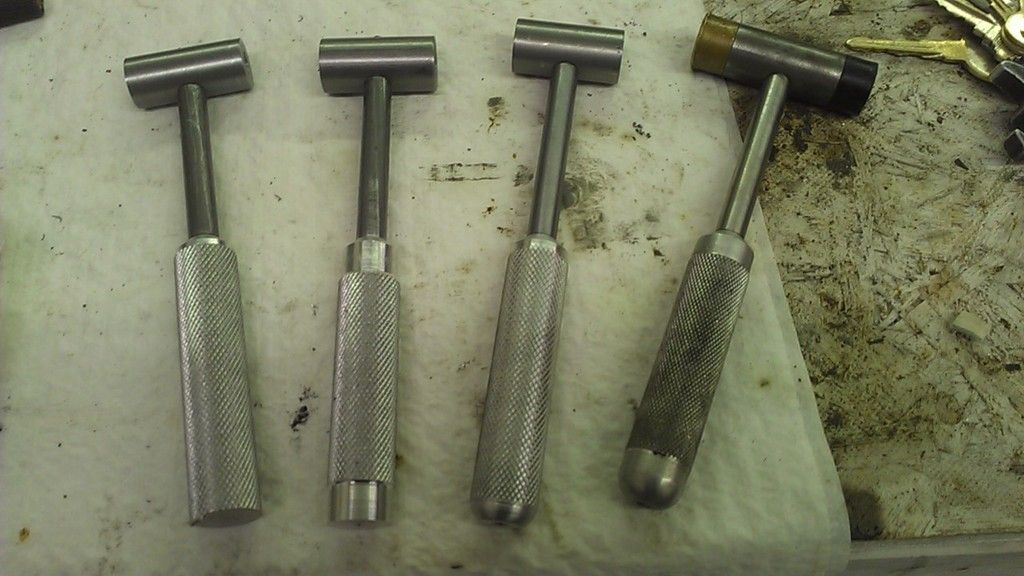npolanosky
Cast Iron
- Joined
- Apr 9, 2016
- Location
- USA, FL
Hi there!
I'm teaching a basic machining class at my local makerspace, FamiLAB in Longwood, FL. I've got most of it ready to go, focusing on shop safety followed by simple operations on the mill and lathe, with a bit of bandsawing and grinding thrown in to round it out. It's an 8hr hands-on class and I am trying to find a simple project that incorporates both milling and turning, and ideally leaves the students with something useful like some sort of tool.
We have a bridgeport-style knee mill, a 10x24" lathe, and a gaggle of mini mills and lathes of various makes- Taig, Grizzly, horrible freight, Prazi, etc (And a HAAS VF-1 VMC, but that doesn't count ). The class will be 5-6 people per session, and since we have only one BP the project should be doable on smaller tools if possible.
). The class will be 5-6 people per session, and since we have only one BP the project should be doable on smaller tools if possible.
I've got ideas for the individual machines, and I have ideas for more complex projects, but I am having a really hard time finding the perfect project to introduce a handful of people to the shop in one swoop. Any suggestions?
I'm teaching a basic machining class at my local makerspace, FamiLAB in Longwood, FL. I've got most of it ready to go, focusing on shop safety followed by simple operations on the mill and lathe, with a bit of bandsawing and grinding thrown in to round it out. It's an 8hr hands-on class and I am trying to find a simple project that incorporates both milling and turning, and ideally leaves the students with something useful like some sort of tool.
We have a bridgeport-style knee mill, a 10x24" lathe, and a gaggle of mini mills and lathes of various makes- Taig, Grizzly, horrible freight, Prazi, etc (And a HAAS VF-1 VMC, but that doesn't count
 ). The class will be 5-6 people per session, and since we have only one BP the project should be doable on smaller tools if possible.
). The class will be 5-6 people per session, and since we have only one BP the project should be doable on smaller tools if possible. I've got ideas for the individual machines, and I have ideas for more complex projects, but I am having a really hard time finding the perfect project to introduce a handful of people to the shop in one swoop. Any suggestions?






